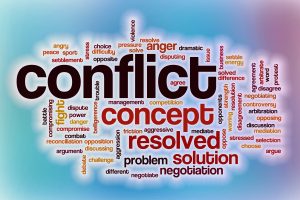 Alternative Dispute Resolution (“ADR”) refers to any means of resolving disputes and legal conflicts privately outside of the courtroom. ADR is neutrally facilitated processes by an independent third party that can take several forms, which may include a neutral evaluation, mediation, negotiation, conciliation, or arbitration or a combination thereof.
Alternative Dispute Resolution (“ADR”) refers to any means of resolving disputes and legal conflicts privately outside of the courtroom. ADR is neutrally facilitated processes by an independent third party that can take several forms, which may include a neutral evaluation, mediation, negotiation, conciliation, or arbitration or a combination thereof.
There are several advantages to resolving disputes through ADR including:
- Speed. The backlog in the courts to have disputes heard is extremely significant and can take years compared to months and sometimes even weeks using the ADR process.
- Cost Savings. Given the lengthy process of litigation, expenses can add up extremely quickly and therefore the expeditiousness of the ADR process translates to cost savings.
- Involvement. Using mediation or conciliation allows the parties to preserve a level of control in the outcome of their dispute by involving them in determining a compromised solution that they both agree to and can accept rather than a winner vs. loser type of scenario.
- Increased Understanding. Restorative mediation is a process designed to increase understanding of the perceived injustices between parties with a goal of rebuilding trust and improving the relationship between the parties.
Rights Arbitration
Interest Arbitration
Workplace/Restorative Mediation
Workplace mediation sometimes referred to as restorative workplace mediation is intended to help improve working relationships by increasing the level of understanding of the parties’ issues and interests. It is aimed to increase the level of trust necessary to restore or improve troubled work relationships. It recognizes that more than likely individuals or groups have to continue working together so the stakes are higher compared to dealing with a single dispute where parties don’t have an ongoing relationship. It includes incorporating preventative measures to help the parties avoid having repeated dispute occurrences. One of the main benefits of mediation is that it provides the parties with the ability to control the outcome of their dispute by assisting them to create their own agenda and solutions rather than having unwanted outcomes imposed upon them.
Civil Workplace Mediation
Workplace Investigations
As a neutral investigator I conduct comprehensive workplace investigations including fact-finding, analysis, and recommendations if requested. A comprehensive written report of findings is provided.
Types of workplace investigations may include but are not limited to:
- Breach of Confidentiality
- Bullying
- Conflict of Interest
- Discrimination/Human Rights Violations
- Duty to Accommodate Violations
- Retaliation
- Sexual Harassment
- Toxic Work Environment
- Workplace Violence or Threats of Violence
- Workplace Misconduct including dishonesty, hate related behavior, theft, etc.
- Workplace Policy Violations
Workplace Assessments
Through conducting Workplace Assessments I provide a means for an organization to address wider spread employee concerns or perceptions regarding the work environment with the aim to help employers determine what is working effectively and where improvement is needed. Assessments provide employers with valuable information needed to make improvements before problems get worse to avoid things like high turnover, loss of key talent, deterioration of brand, or even litigation.
Workplace Assessments can take a variety of forms but typically include a combination of employee survey, interviews, and focus groups.
Signs that may indicate a workplace assessment may be beneficial for your organization:
- Multiple complaints or recurring issues around the same issue
- Rumblings or rumours in the workplace of a toxic work environment
- General concerns around management effectiveness that doesn’t warrant a formal investigation
- Issues related to dysfunction or conflict between members of a workplace team
- Unsatisfactory productivity
- A rash of workplace injuries
- A significant increase in customer complaints
Employers may also benefit from conducting a workplace assessment for the purpose of taking a “temperature or pulse” check to gauge the level of employee engagement or the impact of a significant change that was implemented. This allows the organization to determine if the change is producing the desired results or whether further tweaks are necessary.

